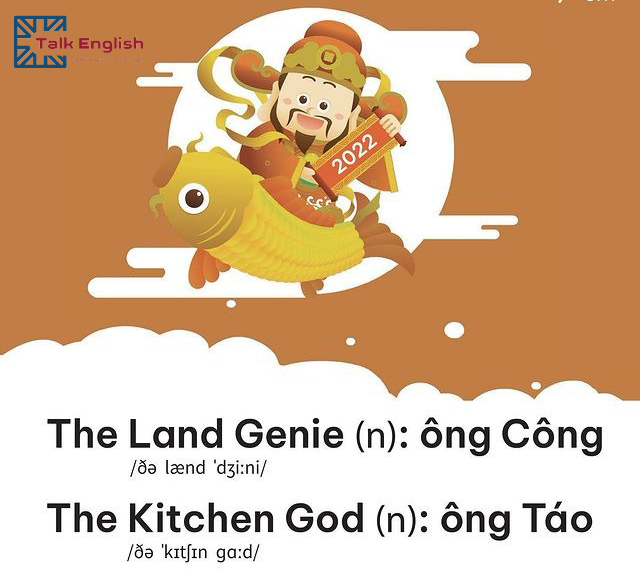Để giúp bạn làm quen với hai nhóm từ này, bài viết này sẽ nêu bật một số danh từ không đếm được phổ biến nhất. Chúng tôi cũng sẽ bao gồm các câu ví dụ sử dụng danh từ không đếm được và các cách thay thế bạn có thể dùng để diễn đạt cùng một ý tưởng theo cách khác.
Những sự khác nhau cơ bản giữa Countable and Uncountable Nouns
Trong tiếng Anh, danh từ có thể được chia thành hai loại chính: danh từ đếm được và danh từ không đếm được.
- I have an apple.
- He ate one apple.
- She bought six apples from the store.
Trong hai câu đầu tiên, người nói chỉ đề cập đến một quả táo duy nhất. Nhưng trong ví dụ thứ ba, người nói đang ám chỉ nhiều hơn một quả, và chữ "s" được thêm vào cuối để biểu thị số lượng lớn hơn. Bạn cũng có thể có không có quả táo nào hoặc một triệu quả táo.
- I bought milk from the store.
Chúng ta không thể đếm sữa (hoặc các chất lỏng khác), vì vậy nó là danh từ không đếm được. Chúng ta cũng không thể thêm “s” vào — sữa vẫn chỉ là sữa! Thay vì sử dụng các từ như “a,” “few” hay “many” để nói về nó, chúng ta dùng "some," "a little," "a lot of" và (trong câu phủ định) "much.
- I need to buy a milk. > I need to buy (some) milk.
- We have many milks. > We have a lot of milk.
- We don't have much milk.
Information
-
He has
much information. > He has a lot of information.
Although information is uncountable, you can count pieces of information.
- I have two pieces of information to share with you.
However, it is more common to simply use “some,” etc.
- I have some information to share with you.
Time

Time is a good example of an uncountable noun. Of course, we can count things like minutes, days and years, but we can’t count time itself.
-
How
many timedo you need? > How much time do you need? -
We’ve been waiting
many times. > We’ve been waiting a long time.
- We’ve been waiting for two hours.
You can count time when it refers to an instance in which something has happened.
- I visited Canada three times.
- How many times have you eaten at that restaurant?
Advice
-
Do you have
advicesfor me? > Do you have some/any advice for me? -
John had a lot of
advicesto share with us. > John had a lot of advice to share with us.
Like information, advice can be referred to as pieces.
- Can I give you a piece of advice?
Grammar
-
I don’t understand
these grammars. > I don't understand this grammar. - I don't understand these grammar points.
-
English
grammars aren'tdifficult. > English grammar isn't difficult.
Equipment
-
The company owns
many expensive equipments. > The company owns a lot of expensive equipment. -
Do you have
any equipments? > Do you have any equipment?
Garbage/Trash
-
Where can I throw away my
garbages? > Where can I throw away my garbage? -
They left
trashesin the living room. > They left (some/a lot of) trash in the living room.
Water/Liquids
-
We bought
two waters. > We bought (some) water. - We bought two bottles of water.
Art
-
What kind of
artsdo you like? > What kind of art do you like? -
He has
many artson his wall. > He has a lot of art on his wall.
There are some cases in which you may see or hear it with an “s.” This is usually when referring to an industry or academic subject, such as in a Bachelor of Arts degree or “arts and crafts.”
- I have a Bachelor of Arts degree in psychology.
- My son is doing arts and crafts in his after-school program.
Nature
-
We saw
many beautiful naturesduring our trip. > We saw a lot of beautiful nature during our trip. -
Our cabin was surrounded by
natures. > Our cabin was surrounded by nature.
Stuff
“Stuff” is a unique word because it can refer to almost anything. However, it is always uncountable.
-
What kind of
stuffsdo you want to buy? > What kind of stuff do you want to buy? -
I have
many stuffsin my apartment. > I have too much stuff in my apartment.
Knowledge
-
I gained
many knowledgesfrom the lesson. > I gained a lot of knowledge from the lesson.
Furniture

-
Do you have
a lot of furnitures? > Do you have a lot of furniture?
Business
Sometimes a noun can be either countable or uncountable depending on how it is used. For example, if you use "business" to refer to a company, it can be counted.
- He started four different businesses over his long career.
However, when it refers to work/tasks/etc., it is uncountable.
- Our business has been doing very well in recent months.
- We have a lot of business to do today.
Clothes
"Clothes" is uncountable and always refers to more than one piece of clothing.
-
She bought
six clothesfrom the store. > She bought some clothes from the store. - She bought six pieces of clothing from the store.
- I packed a lot of clothes for my trip.
Remember that the pronunciation never changes; it always sounds like "close" or "rows."
Food items
Things such as salt, sugar, mayonnaise, ketchup, etc. are uncountable.
- He never puts ketchup on his burgers.
- Can you pass the salt, please?
- I need to buy some flour from the grocery store.



